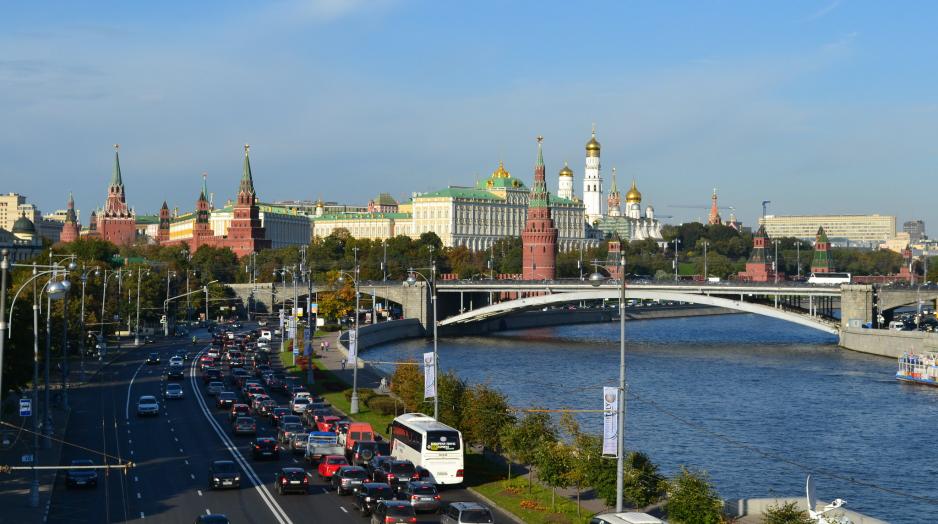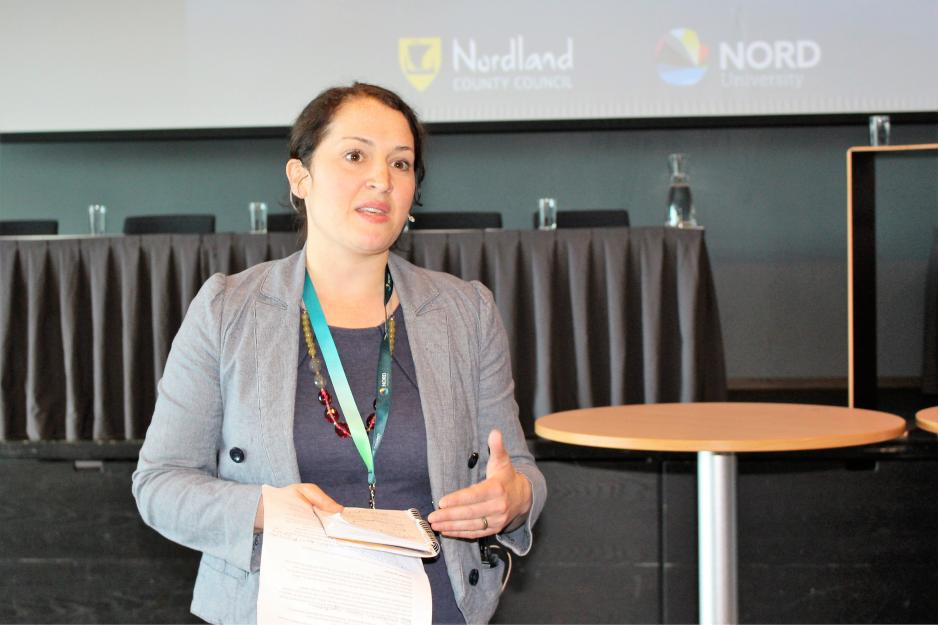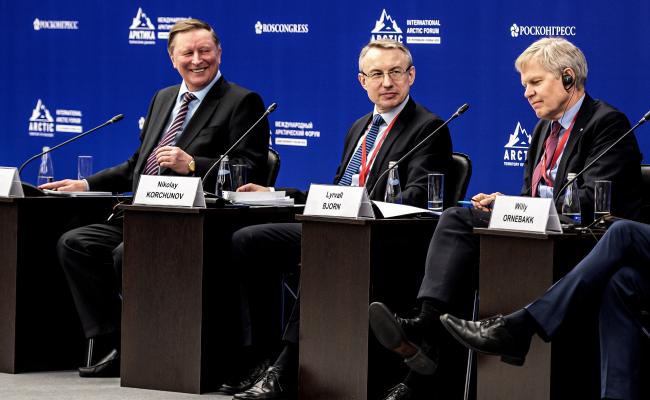Russian Arctic Council Chairmanship: "Will Welcome More Active Engagement of the Observer States"

Russia outlines its goals for the 2021-2023 Arctic Council chairmanship. (Photo: Larry Koester)
Russia sets sustainable development and economic growth as priority areas for upcoming Arctic Council chairmanship. "But also close cooperation and dialogue on the Arctic matters in different formats", says Russian Ambassador at Large Nikolay Korchunov to High North News.
With its Arctic Council chairmanship set to begin in May 2021, the Russian Federation has set sustainable development at the top of its priority agenda, but is trying to balance that with its economic development and resource extraction goals.
“We plan to make sustainable development of the Arctic a predominant task and our priority during [the] Russian Chairmanship in the Arctic Council,” wrote Russian Ambassador at Large Nikolay Korchunov in a statement to High North News.
Korchunov is also the Senior Arctic Official of the Russian delegation to the Arctic Council.
Important for well-being
“I would like to underline the importance of a pragmatic approach to this problem, which, on the one hand, is focused on minimizing the negative consequences of climate change, and on the other, provides for new opportunities both in maritime navigation and extraction and processing of natural resources,” Korchunov said.
“Sustainable economic growth is an important prerequisite for well-being. Ensuring transport accessibility and connectivity in the region, [and] the development of infrastructure are also among our primary goals.”
Along with sustainability, Korchunov noted that Russia is also aiming to address adaptation to climate change, the preservation of biodiversity, extractive projects and economic development, cargo transportation along Arctic sea routes, and the growth of tourism and trade, which affect all Arctic states and “require collective efforts of all eight member states of the Arctic Council,” he said.
Hosting Arctic Congress
The Russian Federation also aims to hold several meetings across its Arctic territory to address climate issues such as marine protection and permafrost degradation, including hosting the third Arctic congress on biodiversity, which is planned for 2022.
Russia will focus on social development to enhance “the quality of life [and] human capital in the Arctic.
The state also plans to address issues related to education and youth, and to hold a UArctic Congress.
Korchunov said Russia will further focus on social development to enhance “the quality of life [and] human capital in the Arctic,” including improving access to health services in the region, improvement of infrastructure (such as bridges, ports, and airports), and the protection of Indigenous peoples’ rights, cultures, and lifestyles.
Remote access
The ambassador emphasized Russia’s interest in sustainable development, mentioning that Russia introduced several projects on sustainability to the Arctic Council Working Group on Sustainable Development (SDWG) in 2020 pertaining to sustainable shipping, finance, and some sustainable energy proposals.
One of the projects, called Snowflake, aims to “create a year-round fully autonomous international Arctic station of modular architecture based on renewable energy sources and hydrogen energy (excluding diesel fuel) for the purpose of testing and popularization of solutions in the field of environmentally friendly life support technologies,” Korchunov said.
The state has other plans to improve access for remote Arctic communities in the fields of telecommunications medicine, biotechnology, clean agriculture, robotics, Internet access, 3D printing, construction, and artificial intelligence “to improve the working and living conditions of people in the Arctic,” which Korchunov said have drawn interest from foreign partners.
Close cooperation
“Russia aims at the closest cooperation and dialogue on the Arctic matters in different formats,” Korchunov wrote.
“We are already working closely with all the Arctic countries not only on Arctic policy development, but also on its implementation. The agenda proposed by Russia is quite broad and we also welcome more active engagement of the observer-states.”
Experts agree that Russia has always been the most important Arctic state due to the size of its northern territory and heritage of industrialization and urbanization, which was developed during the Soviet period.
Large investments
The importance of the Arctic to Russia’s economy cannot be understated, as the majority of oil and gas reserves are found in the Russian north.
The state has made major investments in its northern territories in recent years, including pledging billions of dollars to infrastructure and investment development in early February.
“The main industry of the [Russian] north is hydrocarbons. Russia is not interested in seeing a decarbonized world given how their economy is dependent on natural resources,” said Elana Wilson Rowe, a scholar at the Norwegian Institute of International Affairs.
“It will be interesting to see how they reconcile that with goals of sustainable development.”
US profressive climate agenda
Wilson Rowe is also keen to see how the state’s relationship with Indigenous peoples in Russia will develop, given their problematic relationship with the Russian Association of Indigenous Peoples of the North (RAIPON), which has recently been censored, pressured, and called a “foreign agent” by the Russian state.
“Part of their success will depend on whether the US will cooperate,” Wilson Rowe said, referencing US President Joe Biden’s progressive climate agenda and pledges to improve the environmental situation in the Arctic.
“The US-Russia dynamic will be very interesting as it unfolds in the Arctic Council. The United States seems to have little interest in normalizing their relationship with Russia,” Wilson Rowe said.
Depentent on natural resources
Svein Vigeland Rottem, an expert at the Fridtjof Nansens Institute, agrees that Biden’s efforts to protect the Arctic may cause tension with Russia, and also Norway. Meanwhile, Rottem speculates that Arctic security, which has been high on the US priority list for many years, may decrease in importance under Biden.
Rottem is also interested to see how both Russia and Norway resolve the paradox of the climate issue: “[They] are interested in protecting the climate while being heavily dependent on natural resources,” Rottem says.
However, he says we are “unlikely to see surprises from Russia” given the state’s history of cooperation at the Arctic Council.
The state proved to be a reliable partner in 2004-2006, the last time it held the Arctic Council chairmanship, and was a “major player in search and rescue agreements and oil spill preparedness agreements,” Rottem says.
More about the Arctic Council:
“Consensus among members drives Arctic Council guidelines, assessments, and recommendations, so the chair does not drastically impact the forum’s work. The chair does, however, manage the Council’s agenda, broker among members, and represent the organization on the world stage.
These activities help legitimize the chair and influence the direction of Arctic international relations,” the American Security Project wrote of the chairmanship in summer 2020.
Almost all Arctic boundaries are settled, so there is no need for military force, Rottem says, highlighting the fact that the Arctic is largely a zone of peace and will likely stay that way in the foreseeable future.
“The Arctic Council is a soft law institution that doesn’t make binding agreements,” Rottem said.
“Countries use the arena to create common ground and not to confront each other.”





